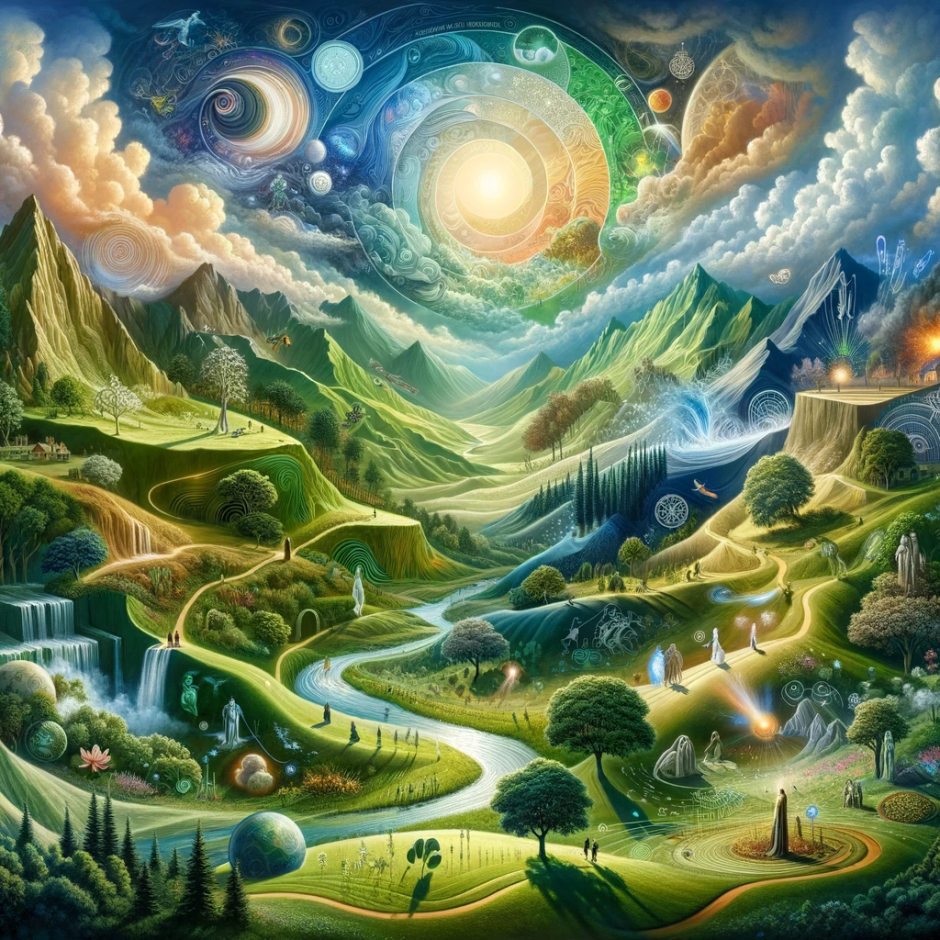John Keats, a visionary of the Romantic era, presented a profound dichotomy in his view of the world: contrasting it as a ‘vale of tears’ against the ‘vale of Soul-making.’ The former sees the world as a place of suffering, devoid of inherent meaning, a perspective where life is but a journey towards redemption from worldly sorrows. However, Keats’ ‘vale of Soul-making’ posits the world as a meaningful arena, a crucible where the soul is forged and refined.
In a letter to his sister and brother, Keats articulates this vision of life’s significance. The world, he suggests, is not merely a passage of torment but a ‘vale of Soul-making,’ a nurturing womb from which the soul emerges, shaped and enlightened. He writes, “I have been reading lately two very different books… The whole appears to resolve into this-that Man is originally ‘a poor forked creature’ subject to the same mischances as the beasts of the forest, destined to hardships and disquietude of some kind or other” (Keats). This observation reflects on the universality of human struggle, whether in nature or civilization, where hardships and ‘mortal pains’ are inevitable facets of existence.
Keats further expands on this theme, stating, “If he improves by degrees his bodily accommodations and comforts-at each stage… the most interesting question that can come before us is, How far by the persevering endeavours of a seldom appearing Socrates Mankind may be made happy” (Keats). This contemplation underscores the illusion of perfectibility, suggesting that despite advancements, humans remain subject to the capricious whims of nature and the universe.
He poetically illustrates this with the metaphor of a fish in winter or a rose battling the elements, indicating that no state of ‘earthly Happiness’ is immune to the ‘worldly elements’… ‘which it cannot escape’ (Keats). This perspective aligns with the non-dual consciousness philosophy, where life, in all its complexity and challenge, is seen as emerging from a primordial, unifying source, transcending the dualities of pain and pleasure, joy and sorrow.
In a pivotal passage, Keats states, “The common cognomen of this world among the misguided and superstitious is ‘a vale of tears’ from which we are to be redeemed… Call the world if you Please ‘The vale of Soul-making'” (Keats). Here, Keats shifts the paradigm, viewing life not as a vale of tears but as a fertile ground for soul-making, a process where ‘Sparks’ of divinity are transformed into ‘souls’ through the experiences and trials of life. He emphasizes that ‘Souls are made and acquire their own ‘identity’ through the interaction between ‘three grand materials’ (Keats).
These materials, as Keats elucidates, are the ‘Intelligence’, the ‘human heart’, and the ‘World.’ The World, an ‘Elemental space,’ facilitates the interplay of Intelligence and Heart, fostering the formation of the Soul ‘destined to possess the sense of identity’ (Keats). This concept resonates with the non-dualistic view where the individual self, the soul, emerges and evolves within the broader context of a unified, interconnected reality.
Keats further analogizes this process to a school where the human heart is the primer, and the soul is the child learning to read, emphasizing that ‘A World of Pains’ is essential for schooling the Intelligence, turning it towards the Heart, where it develops the capacity to ‘read’ and form an identity (Keats). This metaphor beautifully encapsulates the non-dualistic belief that life’s challenges and joys are not mere happenstances but integral aspects of the soul’s journey towards self-realization and unity with the universal consciousness.
Keats’ vision of the world as a ‘vale of Soul-making’ aligns remarkably with the philosophy of non-dual consciousness. It offers a transformative lens through which we can view life not as a series of random ordeals but as a purposeful journey towards soul-making. Each experience, each ‘prooving of the heart,’ contributes to the evolution and refinement of the soul, emerging from and returning to the non-dual womb of universal consciousness. This perspective invites us to embrace life in all its facets, recognizing the inherent value and purpose in every moment of our existence.
Comments
I invite you to share your ideas on non-duality, spirituality, and symbols. We awaken together! All perspectives are welcome. Please feel free to include links to your writing if you write on these topics. Be aware that I do not always monitor comments. The content shared on this blog reflects my spiritual explorations and is not meant as psychological advice; for that, please consult a qualified mental health professional. Please read the terms of use.

